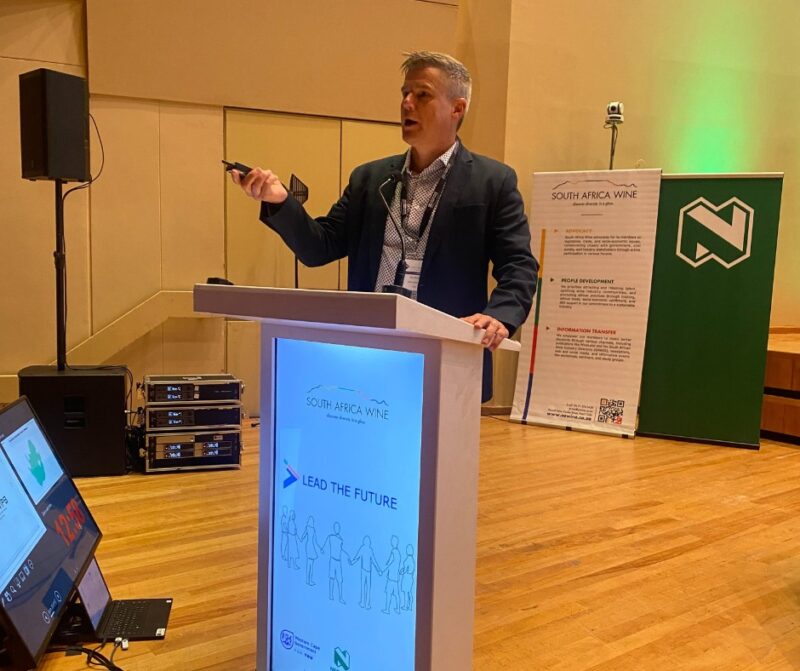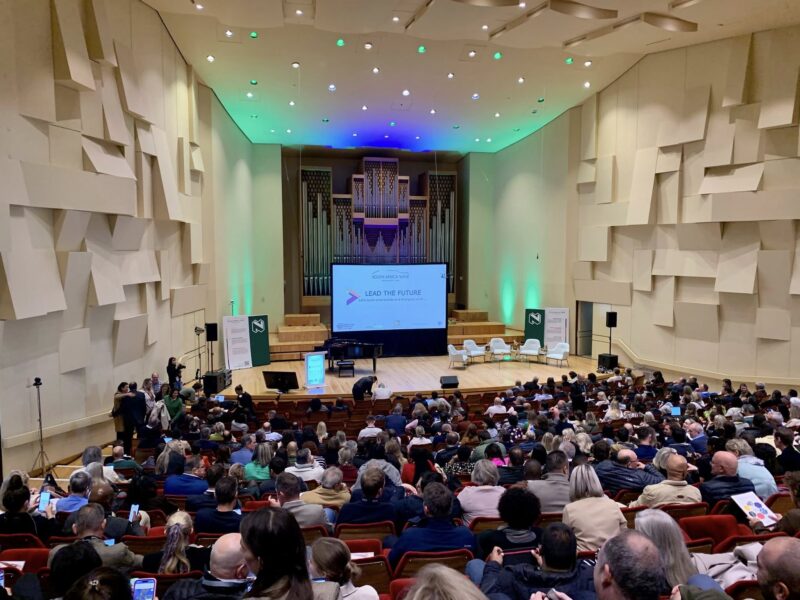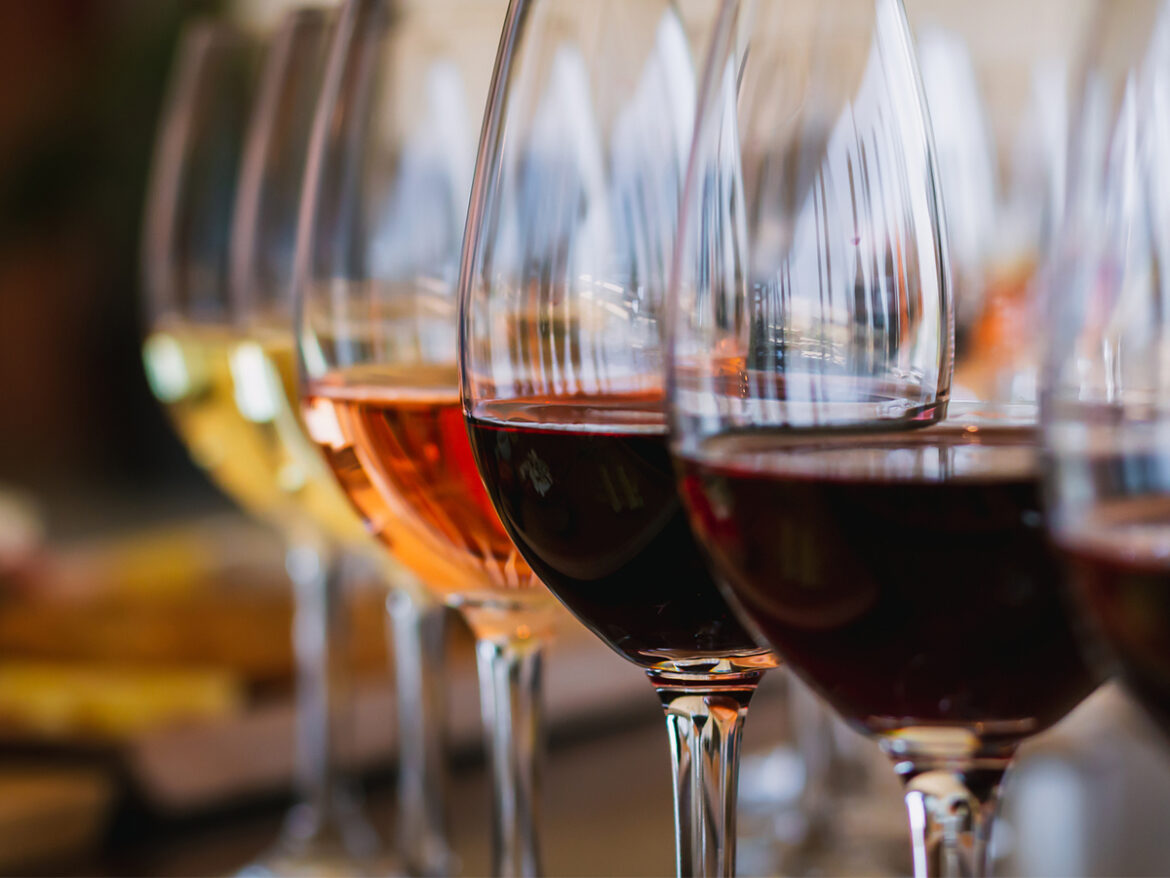At the 2025 South Africa Wine Summit, held at Stellenbosch University Conservatory, the message was crisp and clear. The local wine industry may be steeped in centuries of tradition, but if it wants to stay relevant in the local and global game, it needs to uncork bold, new ideas for the future.
South Africa Wine CEO Rico Basson said the wine industry must strike a careful balance between honouring its 366-year heritage and embracing innovation to stay globally competitive.
Amid a challenging trading climate, Basson urged wine businesses to avoid distractions like fear of missing out (FOMO) and instead focus on building strong, relevant brands over the long term.
“The world doesn’t need more wine, it needs good-quality, value-driven wine,” he said, adding that many businesses must adopt a “less is more” mindset. “Ask yourself: is your wine and business model still relevant?”
Innovation and planting with purpose
Despite difficult conditions, over 10 000 hectares of vineyards have been planted since 2017 using data, technology, and market-led strategies.
“We planted chenin, sauvignon blanc, chardonnay, cabernet, pinotage, and shiraz. Nothing was planted without a market or a plan. It’s a significant shift from how we used to operate,” he explained.
Furthermore, more than 50 demo sites have been established through Vinpro in collaboration with Stellenbosch University, with innovations like TerraClimb temperature mapping. Wine tourism is also expanding, including new ventures in KwaZulu-Natal.
 South Africa Wine CEO Rico Basson said the world doesn’t need more wine, it needs good-quality, value-driven wine. Photo: Supplied/South Africa Wine
South Africa Wine CEO Rico Basson said the world doesn’t need more wine, it needs good-quality, value-driven wine. Photo: Supplied/South Africa Wine
Basson also highlighted that black-owned wine land now totals between 2 000 and 2 500 hectares. However, it is still lagging behind citrus (7 000 hectares) and apples/pears (4 000 hectares), but showing strong potential.
“The current cohort of black-owned brands is phenomenal. They need our full support,” said Basson.
He noted that R1 billion in land value has been created for black entrepreneurs, alongside a further R1 billion invested by the industry in housing, safety, and infrastructure.
Canned sparkling wine now accounts for a third of the local market, with 15 million litres sold annually.
Yet the industry still faces key challenges in trade, port logistics, sustainability, education, data and policies. “We should stop making new regulations because we cannot enforce them, and therefore, regulation just become counter-productive for investment.”
For Basson, heritage and innovation go hand in hand, and he urged the industry to build on its 366-year legacy while focusing on innovation and impactful change.
Related stories
‘The only certainty is uncertainty’
Meanwhile, Nedbank economist Nicola Weimar offered a sobering view of the tough economic landscape the wine industry faces.
Weimar said South Africa’s wine industry is already grappling with significant local challenges, and now, global instability adds to the strain. She adds that shifting geopolitical dynamics, particularly in the US, fuel uncertainty.
“We’re probably going to see weaker US growth and slower global growth,” she said. “US inflation is likely to remain high, and because the US economy is so dominant, this will impact the rest of the world.”
She warned of a “major reorganisation of global supply chains” which could be disruptive. “And the worst part is, we still don’t know what government policy is.”
For exporters reliant on stable trade relationships, the risks are rising. “The main takeaway from this mess is that the only certainty is uncertainty,” Weimar said.
Back home, things aren’t much easier. After weathering inflation spikes, infrastructure woes, and interest rate hikes, consumers are cautiously coming up for air, but their wallets are still tight.
“If you pay more just to service the interest on your debt, you’ve got less funds available for discretionary spending. And although wine is enjoyed by many, it’s not quite an essential.”
Nicola Weimar
Essentials now account for nearly 50% of consumer spending, up from 40% in the early 2000s. “You’re (wine businesses) competing with every other product for market share of a shrinking discretionary income,” she warned.
This squeeze is reflected in falling alcohol sales, which have declined for two years. “Alcohol tends to track overall consumer spending, and we’ve had two tough years in general.”
Still, there are encouraging signs. Retail sales and tourism are rebounding, with tourism making a notable impact. “This region has been the primary beneficiary of the return of tourists to South Africa. It’s not quite back to pre-pandemic levels, but it’s very close.”
Real income is also on the rise. Employment creation has increased to above pre-pandemic levels, Weimar added. “More people earning income means more people with the ability to spend.”
 The entire wine value chain gathered under one roof with one purpose: to build a stronger and more resilient wine industry. Photo: Supplied/ SA Wine
The entire wine value chain gathered under one roof with one purpose: to build a stronger and more resilient wine industry. Photo: Supplied/ SA Wine
Diplomacy on tap
The Western Cape minister of agriculture and tourism, Dr Ivan Meyer, stressed the urgent need for market access and international economic diplomacy to protect and expand export opportunities, rather than waiting decades for traditional trade agreements.
“Economic diplomacy is now one of the biggest things I do. In fact, I now spend 60 to 70% of my time on this. We must open new markets for our products in the international community through diplomatic engagement,” he said.
Meyer said the Western Cape government had developed a specific African strategy, targeting the continent’s one billion consumers. “We use economic diplomacy to address this particular gap. All our consuls general across Africa are part of this strategy. Our engagement with the continent is intensifying.”
The MEC highlighted that many of the world’s ambassadors are based in Pretoria, which allows him to regularly meet with them either in Cape Town or Gauteng. His recent engagements have included representatives from Vietnam, Morocco, the Netherlands, Germany, Japan, Portugal, and the Philippines.
Vine support: Nedbank’s roots run deep
Nedbank, the main sponsor of the event, reaffirmed its annual support, viewing its sponsorship as a key demonstration of its commitment to the wine sector. While the industry faces mounting pressure, there are also emerging opportunities, said Daneel Rossouw, Nedbank’s head of agriculture sales.
“Challenges open doors to explore new markets. But agribusinesses need expert support to navigate complexities like exchange rate volatility and hedging.”
Rossouw emphasised that banks are evolving into strategic partners, offering more than just finance. “We help businesses manage risk and unlock growth by maximising working capital,” he said.
Nedbank’s “think bigger” approach includes tailored advisory services and a strong focus on innovation and technology. Rossouw said this ensures that agribusinesses remain profitable, sustainable, and globally competitive.
READ NEXT: Farming and mining: SA’s economic giants explore shared future
Sign up for Mzansi Today: Your daily take on the news and happenings from the agriculture value chain.

